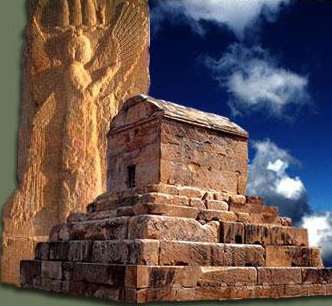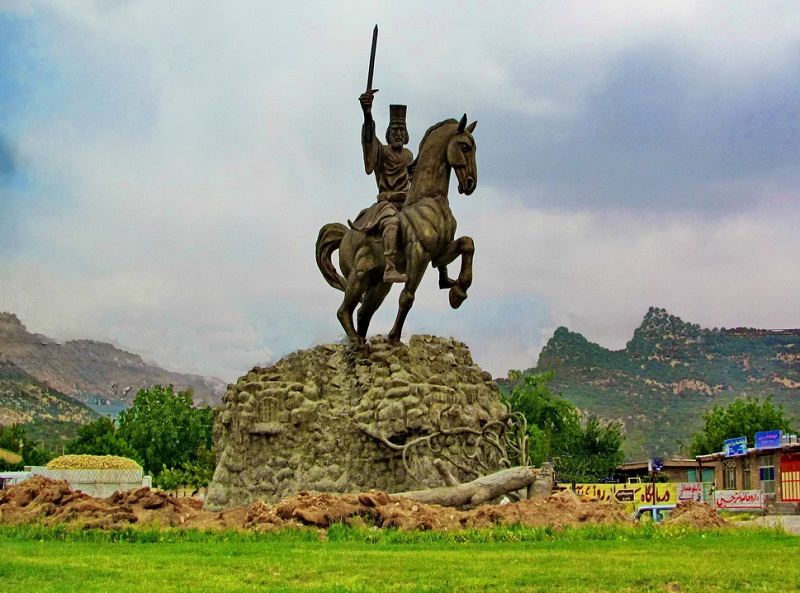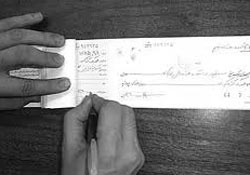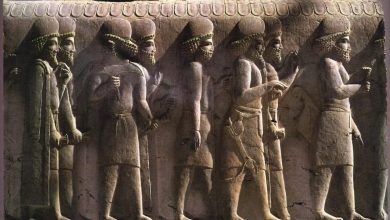Was Greece good and Iran bad?
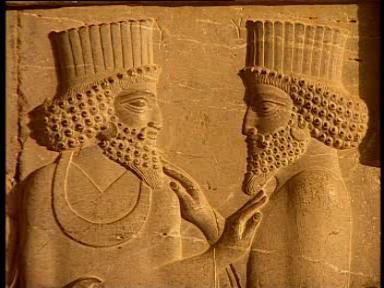 Isocrates (Isocrates)Greek orator said in 380 BC: "For we, who in our private lives think barbarians fit only for domestic slavery, it is a shame to allow our public policy to so enslave our allies." The ancient Greeks considered all non-Greeks to be barbarians; But in this particular case, Isocrates means the Iranians, whose empire at that time was the largest empire in human history, and in the west from Asia Minor. (Current Turkey) And in the east it covered the borders of India. These words are part of the many speeches of the Greek orator addressed to the Greek city-states that were constantly at war with each other to put aside the conflict and unite to fight against Iran.. Isocrates claimed that Iranians are cowards and misogynists and do not deserve to fight. Therefore, the Greeks will not have much trouble to overcome them.
Isocrates (Isocrates)Greek orator said in 380 BC: "For we, who in our private lives think barbarians fit only for domestic slavery, it is a shame to allow our public policy to so enslave our allies." The ancient Greeks considered all non-Greeks to be barbarians; But in this particular case, Isocrates means the Iranians, whose empire at that time was the largest empire in human history, and in the west from Asia Minor. (Current Turkey) And in the east it covered the borders of India. These words are part of the many speeches of the Greek orator addressed to the Greek city-states that were constantly at war with each other to put aside the conflict and unite to fight against Iran.. Isocrates claimed that Iranians are cowards and misogynists and do not deserve to fight. Therefore, the Greeks will not have much trouble to overcome them.
Isocrates was not alone in his contempt and contempt for the Iranians. Aristotle, the famous Athenian philosopher, also believed that barbarians, of which the Persians were the most prominent, were "slaves by nature.". Aristotle writes in his book Politics:
It cannot be denied that there are people who are slaves everywhere and other people who are never slaves anywhere. This also applies to noble people. Our nobles not only in their country but in the whole world consider themselves to be of origin; While slaves are only in their own country with lineage.
Based on this hypothesis, the philosopher comes to the conclusion that the rule of the Greeks over the barbarians is completely natural, while there is no doubt that the rule of the barbarians over the Greeks is unnatural.. When Aristotle became the tutor of Alexander, the Macedonian prince who was later nicknamed "the great" in 342 BC, he instilled his anti-Iranian prejudices and prejudices in him.. Less than a decade later, when Alexander invaded Iran and finally conquered it, his master's words were still fresh in his mind..
The worthless thought of many Greeks towards their eastern neighbors kept the two nations in suspicion, enmity and periodic war for more than a century.. The history of bad relations between Iran and Greece goes back to the early years? The founding of the Iranian empire by Cyrus the Great, the first ruler of the Achaemenid dynasty? It goes back to the sixth century BC. Cyrus conquered the Greek cities along the coast of the Aegean Sea in Asia Minor, which the Greeks called Ionia, and at the beginning of the fifth century, Darius and Xerxes, the princes of Iran, invaded the mainland of Greece.. The Greeks repelled these attacks, but the hatred, conspiracy and killing between the Persians and the Greeks continued for a century.. Therefore, it is not strange if in the era of Isocrates and Aristotle, almost all Greeks consider Iranians as their traditional bloody enemies, and the idea of a full-scale war with Iran seems both justified and attractive to the Greeks..
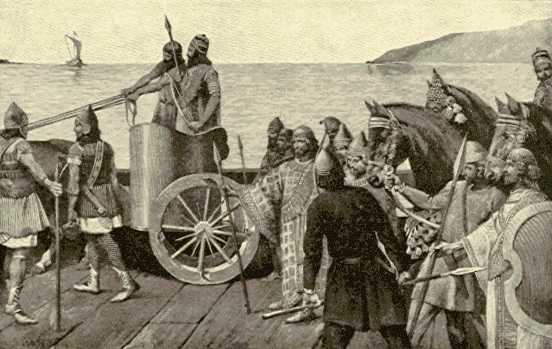
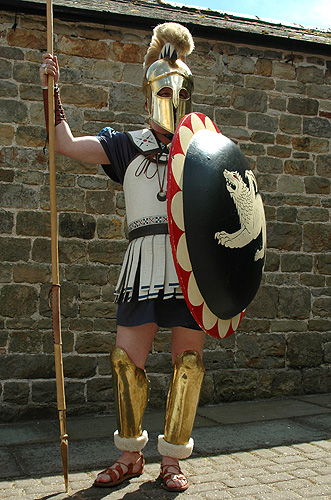
The inseparable bond of Greeks and Iranians
Since the history and destiny of Greeks and Iranians are completely intertwined and tied during two centuries, it is impossible for new historians and students to study the history and culture of one of these two nations without examining the other nation.. Unfortunately, from the point of view of Iranians, the process of this history is almost always interpreted to their detriment, because most of the ancient historical sources remaining about Iran at that time were written by Greeks.. The most extravagant and at the same time the most reliable of these writings is the book of chronicles written by the Greek historian Herodotus of the 5th century BC, which is dedicated to the description of the battles between the Iranians and the Greeks until the author's time.. Other Greek authors whose books contain information about the history and culture of Iran are:: گزنفون (Xenophon) (4th century B.C)Diodorus Siculus (Diodorus Siculus) (1st century BC)Plutarch (Plutarch) (1st century) And Aryan (Arrian) (Second century AD).
Cyrus the Great, who ruled Iran from 550 to 530 BC, gave himself the title of "Happy of the Medes and Persians.". He claimed this title not only because of his conquests but also through heredity, as it is said that Astyages, king of the Medes, was his maternal grandfather..
A distorted view compared to the works of the mentioned people, most of the Iranian sources left behind were discovered in the 20th century.. These sources include inscriptions and reliefs, inscriptions on graves or rocks, and clay tablets containing administrative reports.. These works, with few exceptions, provide us with little information about subjects such as genealogies of kings and elders, important campaigns and large construction projects, and very few and incomplete references to historical events or customs and rituals, beliefs and The daily life of ordinary people. As a result, the new reconstruction of ancient Iran, at least until the early 1900s, was done almost exclusively through the eyes of the Greeks.. As A.T. omsted (A.T.Olmstead), the great scientist of Iranian culture, writes:
Most of the available sources about Achaemenid history were in Greek… The natural result of this was that the history of the mighty Achaemenid Empire (In most western historical texts) It was presented as a series of unrelated events that only gained unity and meaning if they were included in the story of the small Greek states..
Inevitably, this knowledge and incomplete reporting of Iranian culture was mixed with prejudices and strong anti-Iranian fronts of Greek sources; And it leads to a two-dimensional and distorted view of Iranians. In most cases, Western literature and art have wanted to perpetuate stereotypes created by men such as Herodotus and Isocrates.. Novels, movies and even many modern histories have shown Iranians as "negative characters in the story" and portrayed Iran as a cruel, evil and authoritarian country; A country that has always been incompetent but has tried to deprive the Greeks of their beloved freedom with bullying. These false images have only served to reinforce old racism and ethnocentric prejudices; Something that still exists in our time: Prejudices that inevitably present western cultures as inherently noble, fresh and strong, and eastern cultures as evil and corrupt..
When these prejudices were reduced and gradually questioned, a more positive image of ancient Iran emerged. Although some of Iran's leaders were truly corrupt and incompetent, some others, like Cyrus the Great and Darius I, were strong, wise and creative rulers who often moderated absolute power with justice and humanitarian actions.. The great empire of these rulers was very rich not only in terms of natural resources and material goods, but also in terms of the cultural diversity that it created in its own style, just like Greece.. Unlike the leaders of Greece, who only ruled over Greeks and were the rulers of a nation with a common language and cultural heritage, the emperors of ancient Iran were rulers who relied on the loyalty of the people and dominated the fate of a couple of different tribes and nations, each of which had an ethnic heritage. They had their own language, customs and religious beliefs.
Since Iran was made up of foreign nations and workers who all worked for the same goal, Iran was more open to foreign and new ideas than Greece.. In this sense, Iran was more like the present-day United States of America, whose power largely derives from its cultural diversity..
The more complete and realistic picture of ancient Iran that has been drawn in recent decades is largely due to a more impartial and recent review of ancient Greek texts, and to a greater extent to new archaeological discoveries.. The first systematic excavations of the Great Iranian Palace in Persepolis ("Persepolis" in the Greek language, which was destroyed by Alexander in the 320s BC) In the mid-1930s (1310 AH) It was done and in the following years, more objects and clay tablets were discovered there and in other parts of Iran. Omstead says about these findings:
We can through them with the names of workers (who built these palaces) And let's get to know the countries where these workers came from, the work they did, and the amount of wages they received.. We also know the name of Dariush's new daughter and her mother and the gifts she gave… From the archaeological findings and from these tablets, for the first time we get an idea about the public life of the people.
Undoubtedly, the new explorations and studies of the 21st century will provide us with more information about ancient Iran, one of the most powerful and glorious empires in the history of the world.. Of course, the glory and power of this empire did not last more than three centuries, and for example, compared to the age of the ancient Roman Empire, whose power and greatness was more than seven hundred years, it is not a very long time.. But it should be noted that the age of the Iranian empire is almost equal to the age of the United States of America in 1776 (1155 AH) was born. It has become an eternal and irreversible art in today's world, they look with pride; Iranians have the right to be so proud of their history.

Sent text: Dear user, Mohammad Mehrgan


